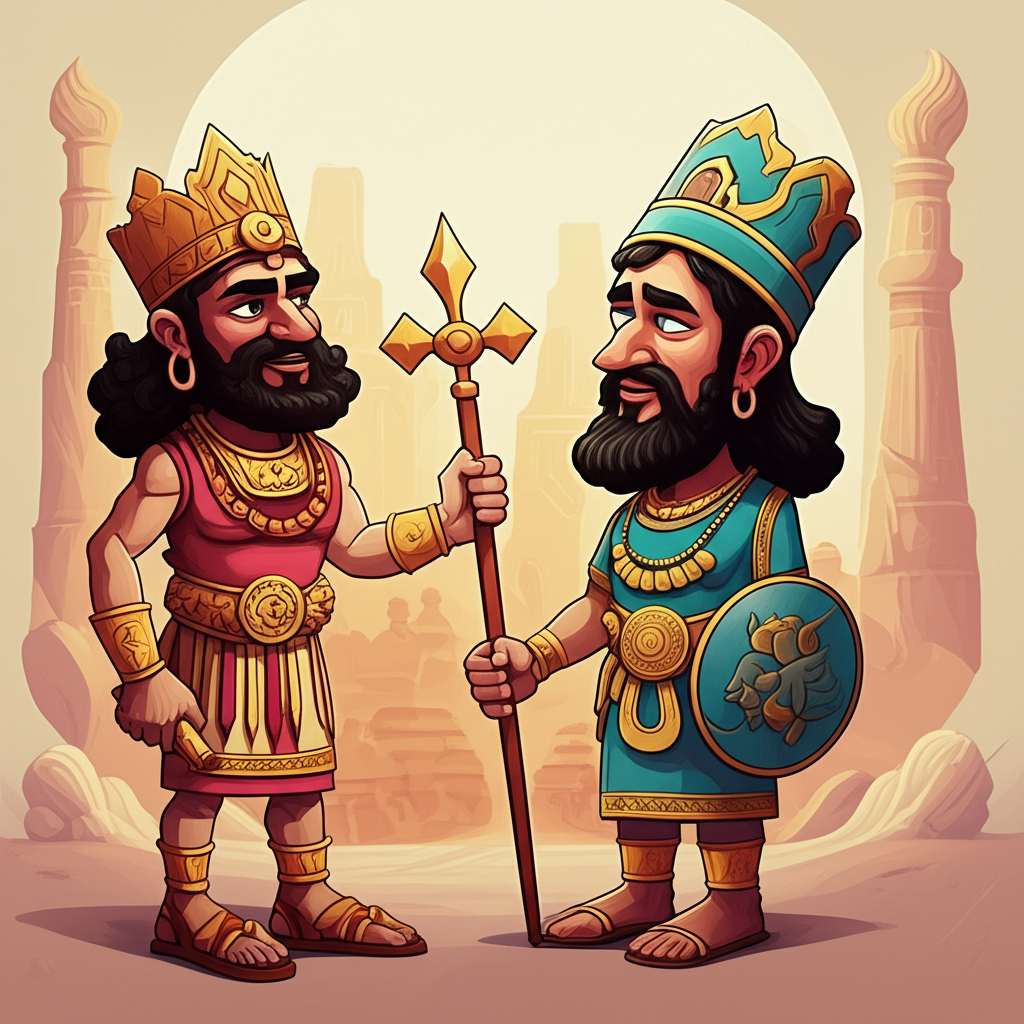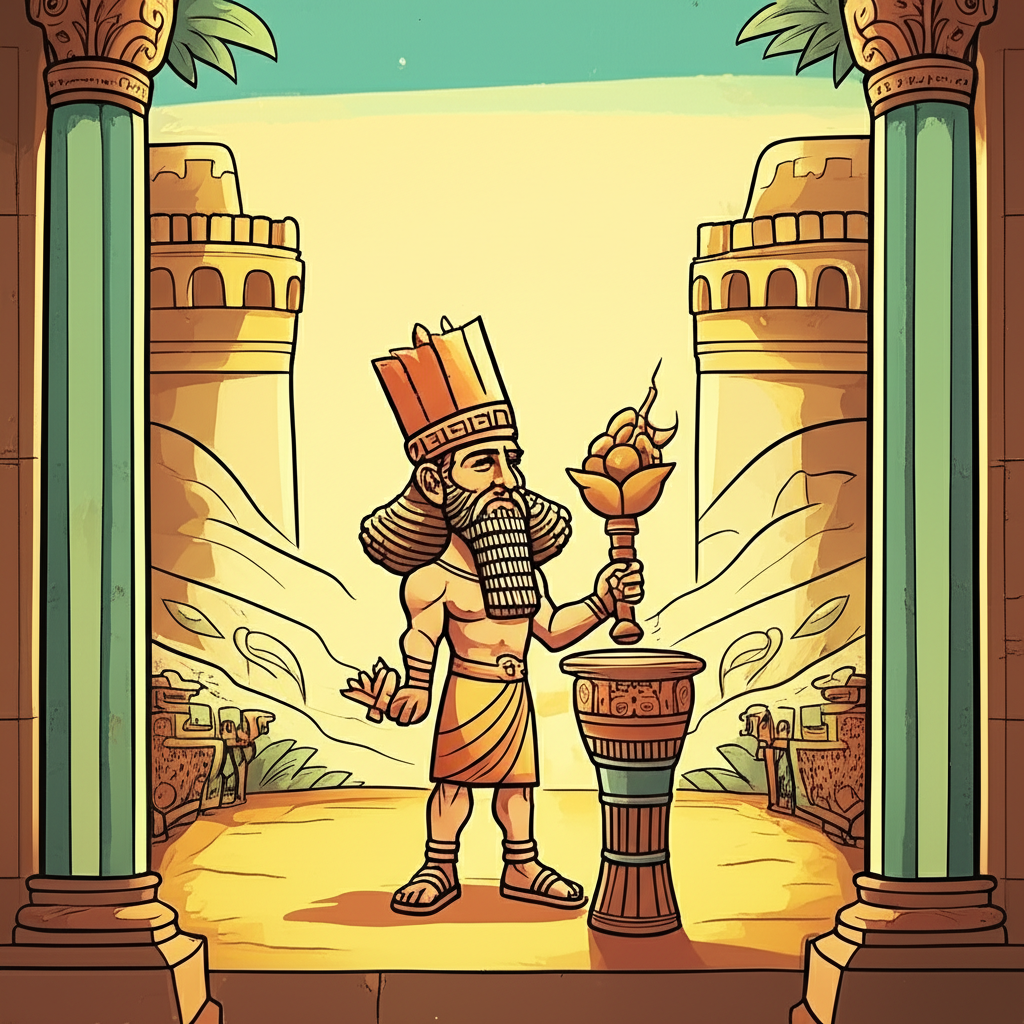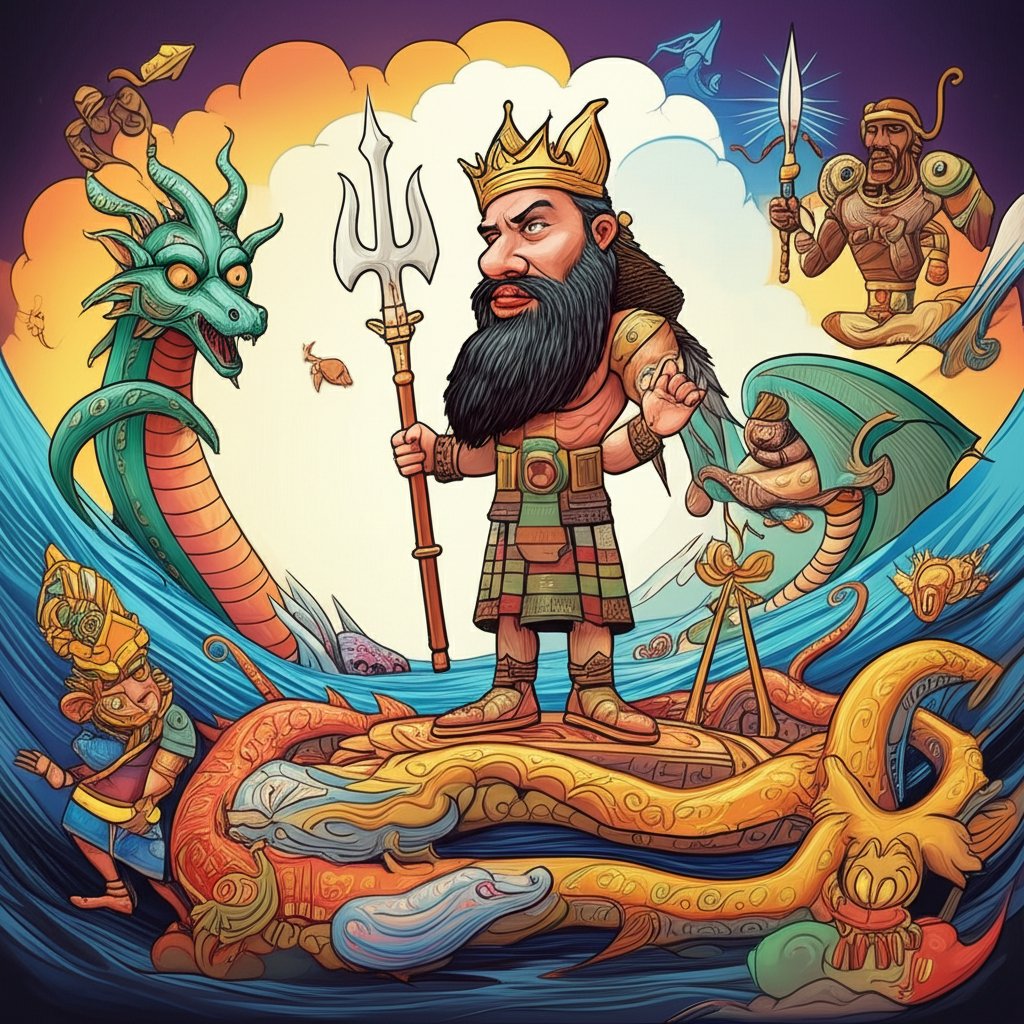
The sands of Mesopotamia, a land cradled between the mighty Tigris and Euphrates rivers, have long held whispers of ancient stories, tales passed down through generations by peoples who shaped the very dawn of recorded history. Among these enduring narratives is the Epic of Gilgamesh, a sweeping saga that delves into the heart of humanity’s oldest questions about life, death, friendship, and the quest for meaning. While the epic’s primary focus is on the legendary king of Uruk, its ancient roots and the very soil from which it sprang are inextricably linked to the rise of cities like Babylon, a civilization whose influence would ripple through millennia. This is not a chronicle of divine decree, but a traditional story, a product of the rich imagination and worldview of ancient peoples who sought to understand their place in a vast and often mysterious cosmos.
The cultural era in which the Epic of Gilgamesh took root was one of profound societal transformation. From roughly the 4th millennium BCE onwards, Mesopotamia witnessed the emergence of complex city-states, the development of writing, and sophisticated systems of governance and agriculture. Life was intimately tied to the rhythms of the land, the capricious flow of the rivers, and the perceived will of powerful, often anthropomorphic deities. The world was seen as a place governed by these divine forces, whose favor needed to be sought and whose displeasure was to be feared. Natural phenomena – floods, droughts, celestial movements – were interpreted as direct communications from the gods. Within this framework, kings like Gilgamesh were not merely rulers but intermediaries, tasked with maintaining order and appeasing the divine. The very concept of a "prophecy" in this context was less about foretelling specific future events with perfect accuracy, and more about understanding divine intentions or the natural consequences of actions, often interpreted through omens, dreams, and the pronouncements of priests or diviners.
Within the grand tapestry of the Epic of Gilgamesh, the city of Babylon, though not always the central stage, casts a significant shadow. Babylon, a city that would later rise to unparalleled prominence, was a beacon of Mesopotamian civilization, renowned for its monumental architecture, its intricate bureaucracy, and its deep engagement with the cosmos. The epic, originating from Sumerian roots and later compiled and refined by Akkadian scribes, predates the zenith of Babylonian power but reflects the cultural milieu that gave rise to such a city. Babylon, in its historical context, represented human ambition, the striving for order and grandeur in a world often perceived as chaotic. It was a symbol of organized society, of human ingenuity, and of the ability to harness the environment for the betterment of its people. The "prophecy of Babylon" within this epic, therefore, is not a specific prediction of a future Babylonian empire as we might understand it today, but rather a reflection of the enduring human aspiration for greatness, for legacy, and for a civilization that could stand the test of time, much like the monumental structures Babylon itself would eventually boast.
The narrative of Gilgamesh itself is a powerful exploration of human mortality and the search for immortality. The epic recounts the exploits of Gilgamesh, the mighty king of Uruk, a man of two-thirds god and one-third man, possessing unparalleled strength and beauty. His reign is marked by hubris and tyranny until the gods, in response to the pleas of his people, create Enkidu, a wild man raised by animals, to challenge him. Enkidu, after a fierce battle, becomes Gilgamesh’s closest companion, and together they embark on heroic quests, slaying monsters and venturing into the Cedar Forest. The death of Enkidu plunges Gilgamesh into a profound existential crisis, igniting his fear of his own mortality and his desperate pursuit of eternal life. This quest leads him to Utnapishtim, the only mortal granted immortality by the gods, who recounts the tale of a great flood. Gilgamesh’s journey, his encounters with the divine and the mortal, and his eventual acceptance of his own finite existence form the core of the epic.
The "prophecy of Babylon" in this context can be seen as an emergent theme, woven into the fabric of the epic’s exploration of civilization and legacy. While the epic predates the most famous period of Babylonian rule, the city itself, as a concept and a growing power center in Mesopotamia, embodied the human drive to build, to endure, and to leave a lasting mark. The epic’s portrayal of Uruk, Gilgamesh’s city, with its mighty walls and grand temples, can be seen as a precursor to the aspirations embodied by Babylon. The epic doesn’t offer a literal prophecy of a future Babylonian empire, but it resonates with the very spirit that would fuel such an empire: the desire for permanence, for order, and for a civilization that could defy the ravages of time. The enduring nature of the epic itself, surviving millennia, can be viewed as a testament to this very aspiration for legacy, a prophecy fulfilled not by divine decree, but by the power of human storytelling.
The symbolism within the Epic of Gilgamesh is rich and multifaceted. Gilgamesh himself represents the duality of human nature – the desire for power and glory intertwined with vulnerability and the capacity for love and loss. Enkidu embodies the untamed natural world, the wildness that must be integrated with civilization. The great flood, a recurring motif in Mesopotamian mythology, symbolizes divine judgment and the cyclical nature of destruction and renewal. The quest for immortality can be interpreted as humanity’s eternal struggle against the inevitability of death and the yearning for meaning beyond the transient. The "prophecy of Babylon," in its broader sense, symbolizes the enduring human ambition to create enduring civilizations, to build monuments and systems that will outlast individual lives, and to achieve a form of permanence through collective achievement. It speaks to the human desire to leave a legacy, to be remembered, a sentiment that fueled the construction of magnificent cities like Babylon.
In the modern world, the Epic of Gilgamesh continues to captivate and inform. Its themes of friendship, loss, the search for meaning, and the human condition resonate deeply, making it a cornerstone of comparative literature and mythology studies. The epic has inspired countless works of art, literature, and even popular culture. From epic poems to novels, films, and video games, the characters and narratives of Gilgamesh have been reinterpreted, adapted, and reimagined, allowing new generations to engage with its timeless questions. The "prophecy of Babylon," as a symbolic representation of enduring civilization and human ambition, finds echoes in discussions about urban development, the pursuit of technological advancement, and the desire to create societies that can withstand the challenges of time.
In conclusion, the Epic of Gilgamesh, with its profound exploration of the human experience, offers a window into the worldview of ancient Mesopotamia. The "prophecy of Babylon," not as a specific foretelling but as a symbolic aspiration, speaks to the enduring human desire for legacy and the creation of lasting civilizations, a sentiment that would find magnificent expression in the city of Babylon itself. As Muslims, we recognize that only Allah is the true Creator and Sustainer, and that all power and knowledge ultimately reside with Him. This epic, therefore, is cherished not as a divine revelation, but as a testament to the rich tapestry of human cultural heritage, a testament to the power of imagination and the enduring tradition of storytelling that has shaped our understanding of ourselves and our place in the world. It reminds us that even in the stories of ancient peoples, we can find echoes of universal human concerns and aspirations that continue to resonate through the ages.




